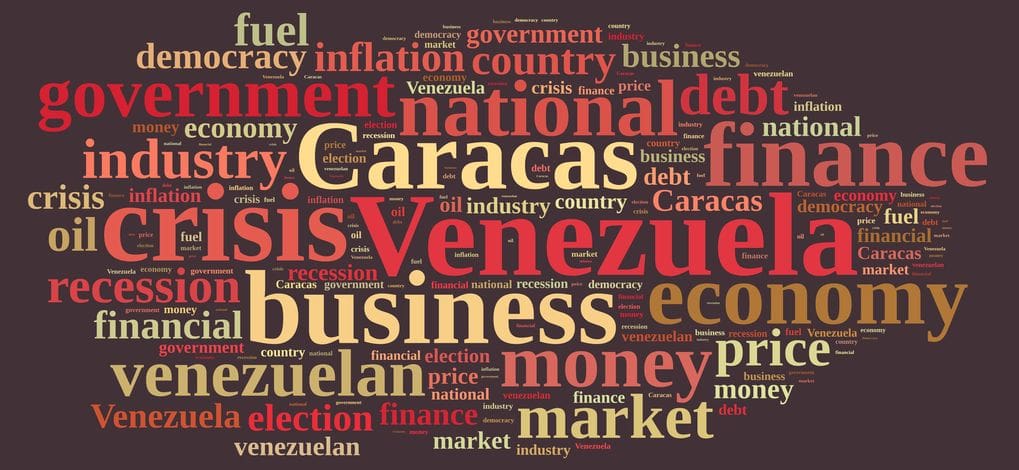Venezuela’s socialist government has been on a downhill slide for years. This week the U.S. sanctioned state-owned oil and natural gas company Petròleos de Venezuela, S.A. (PdVSA) and its central bank.
Oil production, Venezuela’s primary cash producer, has steadily declined during the past 10 years resulting in foreign partners continuing to cut activities in the oil sector. With Venezuela’s heavy dependency on the oil industry, the country’s economy will likely continue to shrink, and runaway inflation at an annual rate of 225,000 percent has put the government in jeopardy.
U.S. has urged Venezuela’s military to accept a peaceful transfer of power from President Nicolas Maduro to the leader of the country’s National Assembly, Juan Guaido, who has been recognized by the U.S. as the nation’s president.
Even though Venezuela has the largest proven oil reserves in the world (302 billion barrels), most of Venezuela’s oil is low quality. It is very thick, and it has a high-sulfur content, which makes it more difficult to refine.
Furthermore, Venezuela’s revenue from oil exports is severely constricted because only about half of the exports generate cash revenues. U.S. refiners were among the few customers that remitted cash payments. The remaining crude oil exports are sold domestically at a loss or sent as loan repayments to China and Russia (the repayments to Russia are sent to Nayara Energy’s (formerly Essar) Vadinar refinery in India to service debt that Venezuela owes to Russian oil company Rosneft, the co-owner of the Vadinar refinery), according to the U.S. Energy Information Administration.
Venezuela’s crude oil production has declined rapidly and has fallen to a 30–year low. As of May 2018, Venezuela’s crude oil production was 1.4 million barrels per day (b/d), according to EIA. Oil production in Texas averaged about 4 million b/d in 2018.
Venezuela had 1.3 million b/d of domestic nameplate crude oil refining capacity in 2017, which were all operated by PdVSA. However, actual refining capacity in early 2018 was less than half of its nameplate capacity, estimated at 626,000 b/d. PdVSA also operates significant refining capacity outside the country. The largest share of Venezuela’s foreign downstream operations is in the United States, followed by significant operations in the Caribbean and stakes in Europe.
According to tanker tracking data, Venezuela exported an average of 1.5 million b/d of crude oil in 2017, 10% lower than the 2016 level. In the first quarter of 2018, exports of Venezuela’s crude oil fell to 1.1 million b/d, based on tanker loadings data.
Venezuela’s crude oil exports to the United States fell from a high of 1.1 million b/d in 2007 to about 506,000 b/d in October 2018, according to EIA. The U.S. historically has been Venezuela’s largest customer, but recently China and India have increased imports from Venezuela.
In mid–June 2018, ConocoPhillips’ seizure of PdVSA’s Caribbean export and storage facilities hampered Venezuela’s ability to maintain its export levels until it came to a repayment agreement with ConocoPhillips in August 2018. The country relies on these terminals to send crude oil to Asia.
“The U.S. is holding accountable those responsible for Venezuela’s tragic decline,” Treasury Secretary Steven Mnuchin said.
Mnuchin said that Citgo Petroleum, a Houston-based unit of PDVSA, will be able to continue to operate but won’t be allowed to remit money to the Maduro regime. Its proceeds must instead be held in blocked U.S. accounts. Guaido said Monday he would take control of Venezuelan accounts abroad and would name new boards of directors for PDVSA and Citgo.
The Treasury secretary added that in the “short term” he expects “modest” impact on U.S. refineries. He noted the sanctions wouldn’t affect oil already purchased that is being shipped, and said he didn’t expect U.S. gasoline prices to rise.
West Texas Intermediate crude futures increased from $52.16 on Monday and opened at $54.29 on Thursday.
Alex Mills is the former President of the Texas Alliance of Energy Producers. The opinions expressed are solely of the author.
Alex Mills is the former President of the Texas Alliance of Energy Producers. The Alliance is the largest state oil and gas associations in the nation with more than 3,000 members in 305 cities and 28 states.





